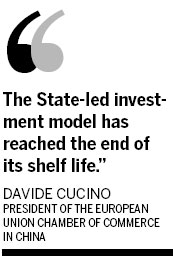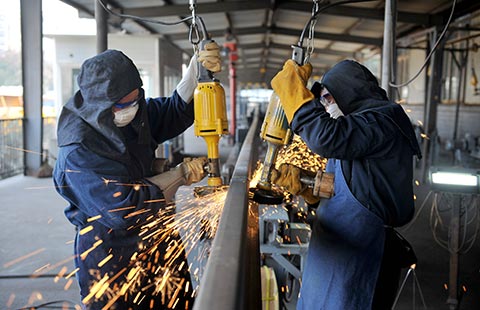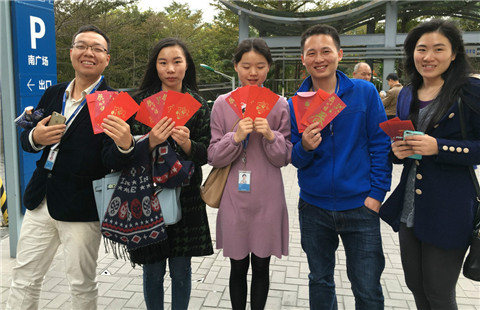State-led investment 'not sustainable': Chamber
By Lan Lan (China Daily) Updated: 2012-09-07 10:12
Overspending in unnecessary projects leads to poor productivity
The State-led investment model is no longer sustainable but China still has enormous potential for economic growth and still offers opportunities to foreign investors, the European Union Chamber of Commerce in China said on Thursday.
China has a historic opportunity to establish the conditions for a second period of sustained growth through a move up the value chain, the organization said in an annual lobbying paper.
"The State-led investment model has reached the end of its shelf life," said Davide Cucino, the European chamber president. "Now the low-hanging fruits have been plucked and productivity returns on investment are more difficult."

The paper warned that a heavy reliance on State industry was causing too much investment to be made into unneeded projects and leading to poor productivity.
"On the eve of a generational leadership transition, China holds a historic opportunity to raise its economy to a new level," the European Chamber said.
Both China's foreign investment and its economy are slowing down. In the second quarter, its GDP growth slowed to 7.6 percent year-on-year.
Resources are still plentiful enough to promote economic growth, added Dirk Moen, the chamber's secretary-general.
He said urbanizing China will require a large investment and that European companies have an opportunity to do more.
The proportion of the Chinese population living in cities reached 51.27 percent in 2011. Experts expects the figure will increase to approximately 70 percent by the end of 2030.
"But we are starting to see the limits of the old model," Moen said. "If there is no change in policies and in the mix of industries, growth will stop. And that's not good for anybody, including European companies."
The paper said foreign and private Chinese companies should be treated the same as State enterprises.
Besides markets, the European chamber also called for there to be greater access to financing and subsidies.
Song Hong, a senior researcher at the department of international trade with the Chinese Academy of Social Sciences, said many of the complaints sound familiar and that negotiations will prove the best way to solve these issues.
"However, compared with private enterprises, foreign companies enjoyed more favorable tax policies and greater market access," Song said. "But we rarely hear that mentioned."
The value of the European Union's investments declined by 2.7 percent year-on-year to $3.97 billion in the first seven months of 2012, said the Ministry of Commerce.
lanlan@chinadaily.com.cn
- OECD downgrades forecast of 2016 global growth to 3%
- Raising budget deficit ratio a necessity: Vice finance minister
- China to further tap marine economy
- China central bank continues forex sales in Jan
- Govt concerned over money-laundering claims at ICBC's Madrid branch
- Central bank to continue open market operations each business day
- China to create more makerspaces to serve real economy
- HNA spreads its wings in the US
















